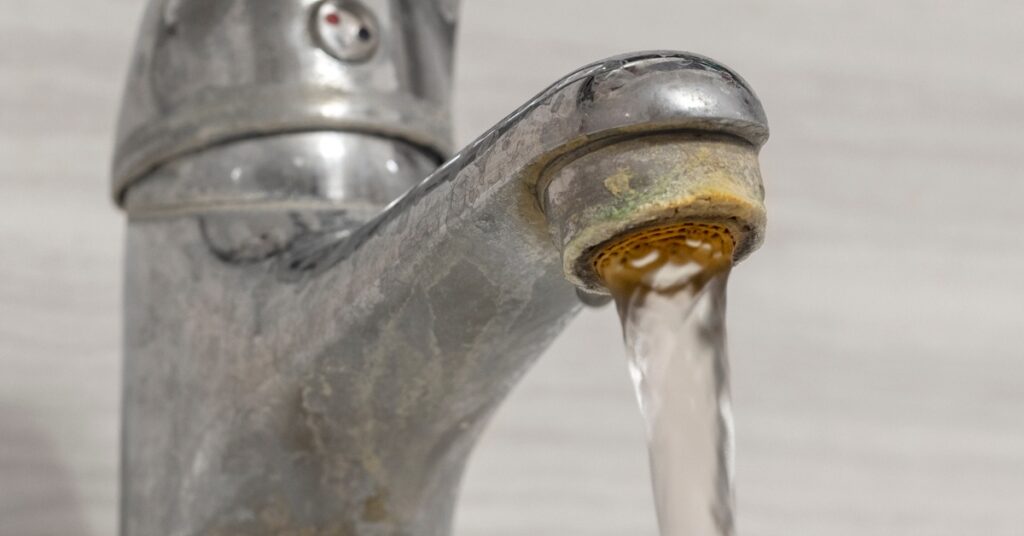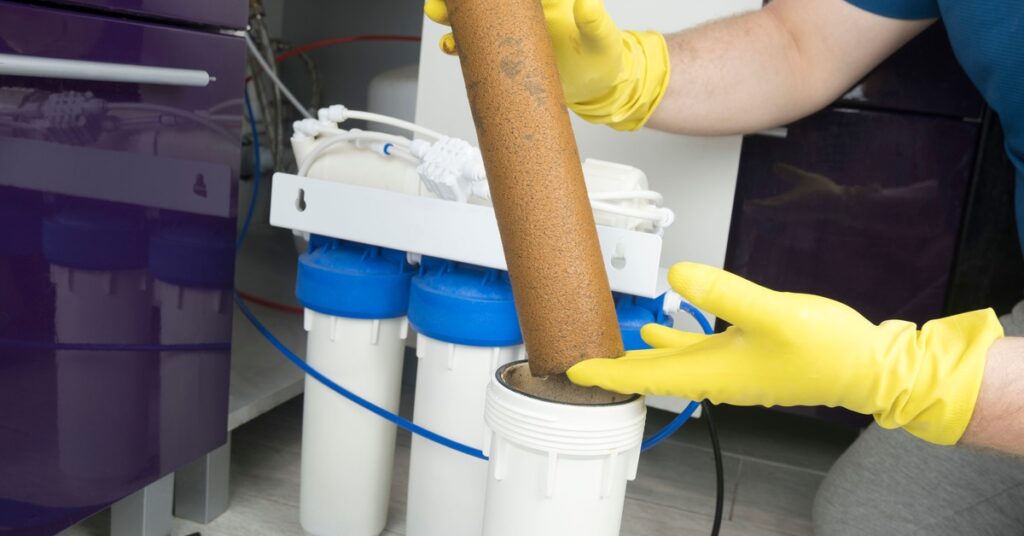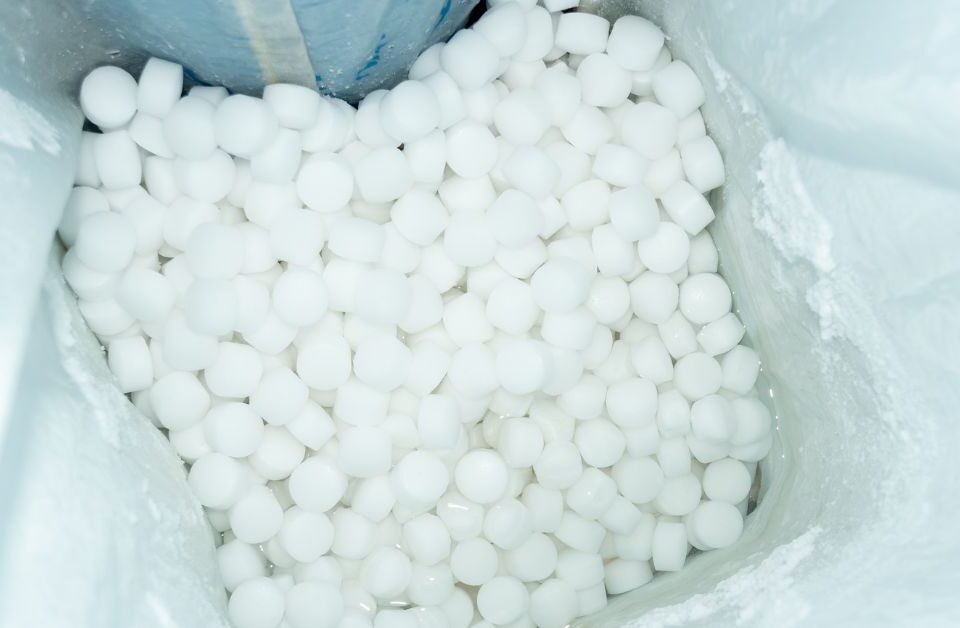
What Is a Well-Water Conditioner? Understanding the Basics
March 28, 2025
Can Well Water Be Bad for Your Skin?
May 12, 2025Many are unaware of what might be lurking in their tap water. You could be drinking invisible contaminants ranging from harmful bacteria to heavy metals. Luckily, purifying your water can be as simple as using a filter. Below, we’ll break down the common contaminants in tap water and explain how filtration systems remove them.
Why You’re Finding Contaminants in Tap Water
Despite the Environmental Protection Agency (EPA) and similar organizations setting federal water standards, drinking water can include a surprising range of contaminants. The EPA regulates 90 substances in drinking water, but many potential contaminants remain unexamined. Additionally, local infrastructure challenges, including aging pipes and outdated water treatment plants, can lead to contamination as water travels to your home.
You don’t escape these problems if you have a well on your property. Private water sources face similar challenges with contamination from agricultural runoff, industrial pollutants, and other environmental hazards.

Identifying Contaminants
Here’s a look at some common contaminants you may find in your water supply:
- Lead: A toxic substance, especially for children. Corroded, outdated pipes often introduce lead into the water supply, leading to developmental issues.
- Nitrates: An inorganic compound that is common in agricultural areas. It seeps into the water supply from fertilizers and runoff. Consuming nitrates in excessive amounts can pose serious health risks.
- Bacteria and viruses: E. coli and Giardia are common pathogens that may infiltrate your water supply, especially if your water comes from untreated or poorly maintained wells.
- Hard water minerals: Calcium and magnesium make water “hard,” reducing the efficiency of soap and detergent while leaving behind scale in appliances.
The above list includes some common pollutants, but there are many others that may also pose serious risks, such as pesticides and pharmaceutical residue. For instance, professionals can sometimes detect traces of prescription drugs in some water supplies. Filtration systems help eliminate these substances, making your water safer and more enjoyable to drink.
The Risks of Leaving Water Untreated
Prolonged exposure to these contaminants can have immediate and long-term consequences for your household. For instance:
- Some scientists believe it possible that elevated lead levels can result in neurological damage in children.
- High nitrate levels can cause a condition called methemoglobinemia or “blue baby syndrome” in infants.
- Pathogen-contaminated water can lead to illnesses affecting the gastrointestinal tract.
While government agencies and local utilities work to mitigate these contaminants, external protection through a reliable water filtration system builds a stronger line of defense.
How Filtration Systems Solve the Problem
Filtration systems actively remove harmful substances, ensuring your tap water meets high purity standards before it reaches your faucet. Advanced systems from trusted providers like Delmarva Water Solutions combine multiple layers of technology to address different impurities, delivering hassle-free, high-quality water. Here’s how these systems tackle the key contaminants mentioned earlier.
Comprehensive Sediment and Particle Filtration
Filtration systems remove sediments, such as sand, dirt, and grit. These particles may damage your plumbing and affect the efficiency of more advanced filtration stages.
Activated Carbon Filtration for Chemical Impurities
Activated carbon filters absorb residual chemicals and organic compounds to neutralize the taste and odor of chlorine or chloramines. Carbon is particularly effective at trapping volatile organic compounds (VOCs), leaving your water odor-free and tasting fresh.
Reverse Osmosis for Precision Penetration
Reverse osmosis (RO) systems provide unparalleled filtration by forcing water through a semi-permeable membrane. This process removes up to 99% of dissolved contaminants, such as nitrates, lead, and bacteria, effectively safeguarding your water.
UV Sterilization for Bacteria and Viruses
UV sterilization works in tandem with physical filters to neutralize harmful microorganisms. The UV light destroys pathogens at the DNA level, making them unable to reproduce or cause harm.
Water Softening Technology for Hardness Reduction
Specialized water softeners eliminate calcium and magnesium ions, preventing scale buildup in your dishwasher or washing machine.

Benefits of Using a Water Filter
Improving your home’s water quality doesn’t just make it taste better. Consider what a properly installed filtration system can do.
Protect Your Health
Filtration eliminates harmful bacteria, heavy metals, and chemicals that might cause significant health issues. Families relying on well water are especially vulnerable to contamination without municipal oversight, making a reverse osmosis filter crucial.
Extend Appliance Lifespan
Hard water and sediment damage appliances over time, reducing their lifespan and forcing costly replacements. Water softeners and whole-house filters are an investment in your health, water supply, and equipment.
Eco-Friendly Hydration
Filtered tap water reduces reliance on single-use plastic bottles. An efficient filtration system allows you to enjoy clean and safe water while lowering your environmental footprint.
Enhanced Taste and Smell
Clean water means better-tasting coffee, tea, and even food preparation, free from the overpowering smells of chlorine or metallic residues.
Physical Improvements
Hard water can leave your skin feeling dry and irritated and your hair looking dull because of its mineral content. Softened, filtered water helps your skin and hair retain moisture, promoting a healthier, more vibrant appearance. Moreover, using purified water for cleaning and bathing reduces the chances of skin breakouts, allergies, or other sensitivities that harsh contaminants could be triggering.
Why Choose Delmarva Water Solutions?
Delmarva Water Solutions understands the unique challenges homeowners face in Maryland, Virginia, and Delaware. We use solutions our well water filtration system to address the specific needs of households on the Delmarva Peninsula.
Here’s what sets us apart:
- Expert customization, as we understand that every home is different. We customize our water treatment systems for your specific water composition.
- Our systems are energy-efficient and environmentally friendly.
- We’re your authorized EcoWater Systems dealer. Our products are Energy Star and ISO 9001 rated, ensuring they last for years.
- Our no-pressure, educational sales approach means you’ll get clear, honest advice about what’s best for your home.
A Healthier, Happier Home Starts With Clean Water
Understanding what the contaminants in tap water are and how filtration systems remove them is the first step to safeguarding your family’s health and comfort. The right water filtration solution can eliminate concerns and elevate your quality of life, whether dealing with corrosive hard water or worrying about nitrate levels.
Take the first step toward purer water today by contacting Delmarva Water Solutions for a free water analysis. A quick consultation could transform your untreated household water into the clean, safe water your family deserves.




